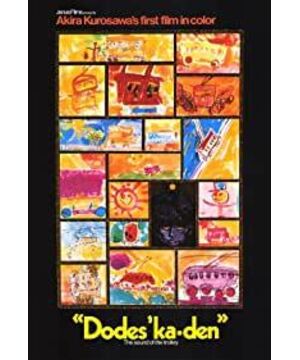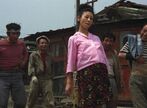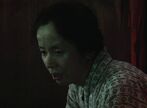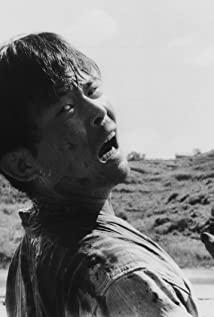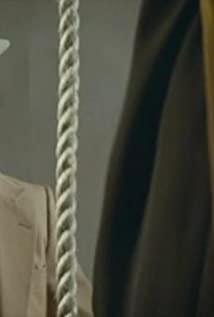An often overlooked masterpiece.
Naturally, I prefer the literary title [Xiaoxu Without Seasons], because it is more suitable for the narrative style of group portraits in this anti-plot work.
The sincere cooperation of the "Four Horsemen" back then is enviable to this day. Akira Kurosawa, Keisuke Kinoshita, Masaki Kobayashi, and Kun Ichikawa are all good at conventional narratives, and they all made styles from the 1960s to the 1970s. The most representative of these attempts are Kurosawa Akira's "failed" "Xiaoxu" and Kobayashi Masaki's "successful" "weird talk".
Looking at the past ten years, [Xiaoxu] is actually not an alternative. The younger generation with the consciousness of experimental exploration has frequently appeared, and the audience's acceptance ability has also been greatly improved, but perhaps Kurosawa fans have different expectations for him, coupled with the rapid economic growth. During the development period, the audience did not want to see such a miserable life, which led to the fiasco at the box office of this work.
Akira Kurosawa, who is very suspicious of each other, is in a period of depression, otherwise it would not show such a ghostly background color, especially when the little beggar died, the surreal setting behind the beggar's father was extremely gloomy, and the beggar was buried after the ashes later. My father suddenly "remembered" that the swimming pool was covered. The wide-angle lens presents the instant imagination, white pool blue water, and the characters are pushed above the frame, which has a breath-taking impact. The beggar's father seemed to be the incarnation of Kurosawa's state of mind at that time. He imagined the absolute pure land, and built an ideal place in his heart little by little. He refused to face the reality, and also caused the people around him to constantly agree with him, but in the end he had to stand alone, thinking of that time. He returned in Hollywood with a bad luck, and idealization and self-loathing are likely to interact frequently. Kurosawa also tried to save himself, the old sage who lived alone and the mentally retarded but innocent Xiao Liu were like his incarnations, a generous and wise man who gave his neighbors (in fact, he was also himself) earnest teaching and generous guidance (a thief and a man who was about to commit suicide, two A little plot now seems a bit too much of a joke, preferring the one to stop the alcoholic man in the rain, and only telling the neighbors "they're all weak" after trying to send the little beggar to the hospital after being rejected); I imagine that in my own world, I can "work" step by step but also enjoy it (Japanese directors are often called "giant awards" because of the production method of the big studio system at that time, as if Zhongping Kang evaluated his own generation of pioneers. Try the difference with the French New Wave).
The film presents the lives of eight groups of people.
"Trolley Maniac" Xiao Liu and his widowed mother. The film begins and ends with this group of characters. They also connect the real and the surreal. In addition to the graceful light and shadow, the wonderful art, the use of sound is also worth pondering. At home, the noise brought by the mother's chanting, the subjective dynamic effects of Xiaoliu's "no physical performance" in the empty ruins, and the wonderful theme music of Xiaoliu. The ending is cruising with light and shadow, and the music is light and moving.
The scene of the old man living alone is the most realistic. The thief comes to steal property late at night, and the shots are completed in one go. In the whole film with a strong sense of form, it gives the audience an appropriate buffer for the narrative and emotional feelings.
The scenes of spastic office workers also tend to be realistic. This character also has a strong shadow of Kurosawa himself, who has been troubled by the same disease. The office worker's fierce wife shopping for food is also very realistic and even has a sense of sketch. The two did not have many roles in the film, and the "contradiction" was completely resolved by a colleague visiting the house. The fierce wife may be an insinuation of the movie, it may be Dongbao, or it may be the audience. In short, it must be the person or thing that makes Kurosawa love and hate; and Kurosawa's attitude is accepting. Sad long years, never give up.
The beggar father and son are the most surreal, and even the character setting has a high sense of concept. The beggar's father is very fond of Eastern and Western architecture, and has always refused to bow his head to "beg". According to the logic of reality, he must have received a higher education and had an extraordinary background, but Kurosawa has completely hidden the background and only kept all the symbols, even the two's. The communication is also full of "program" interest - no matter what the father says, the son will always agree until the son finally dies, and it is even difficult to distinguish whether the youngest son's final imagination of the big house and swimming pool is a last word or completely out of the father's illusion.
The stories of the girl Katsuko and her uncle, aunt and the young man who adore her are a combination of reality and reality. The spatial color and shape of the home and Katsuko's occupation (making silk flowers) are full of formality. The spatial relationship between the characters in several scenes of Katsuko and her uncle It also has a certain sense of form (back-to-back actually has the aesthetic characteristics of Japanese film composition); until the end, Katsuko almost didn't say a word, and in the last scene, he spoke with the young man in a dialogue. Naturally, the way of handling this scene is also relatively formal. At the end, Katsuko admitted that the reason for stabbing the young man was quite touching. She was afraid that she would die (suicide), and he would soon forget her, so she impulsively hurt the only person who really cared about her... Sheng The distant view of the last shot is rare in the whole film with open and simple lines, but because the deep space is blocked, it seems to cut off the future that can be expected.
The walking dead man in trench coat lives alone in a shabby house, his world of color is very different from others. He is the most logical character in history. He witnessed his wife cheating with others. In shame, he seemed crazy and left his former home. In addition to cooking, his actions at home are to tear up the cloth. The cloth with beautiful texture and color is torn apart by him. This action has a strong metaphorical color. His wife came to look for him and begged his forgiveness, but he never said a word. His wife lamented sadly that the sentenced person still has a sentence, but she has no time limit for his forgiveness. This character's story has the most close-up shots in the whole film. The two co-bed together for a moment, and the scene was very tight; on the last day, the wife walked out of his house and looked at the trunk of the tree, as if she wanted to hang herself. It may be a tight scene to emphasize a woman's sense of despair.
There is a lot of writing in the wife-swapping foursome, but what is worth pondering is Kurosawa's color game. This passage can be regarded as an absurd comedy sketch that regulates emotions in the film.
The cuckold husband and coquettish wife and their bunch of half-children are the warm strokes in the film, which are mediocre; the interesting thing is the father's occupation-making a comb.
In fact, Kurosawa was also quite burdened by the title of "The Emperor of Japanese Movies", and in the later years, it was difficult to be favored by local resources. Although several years later, he has continued to make excellent works, but with the help of foreign resources, from [Dersu Uzala] to [Dream], the pre-modern Japanese stories of [Shadow Warrior] and [Ran] are also aimed at international cinema. Altar, until [August Rhapsody] and [Curling Sunset Love], he can "return" to the mainland.
View more about Dodes'ka-den reviews


